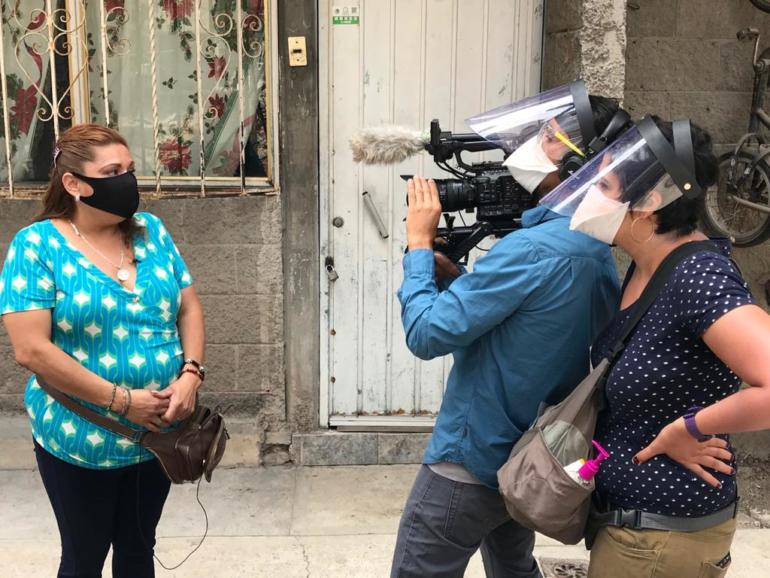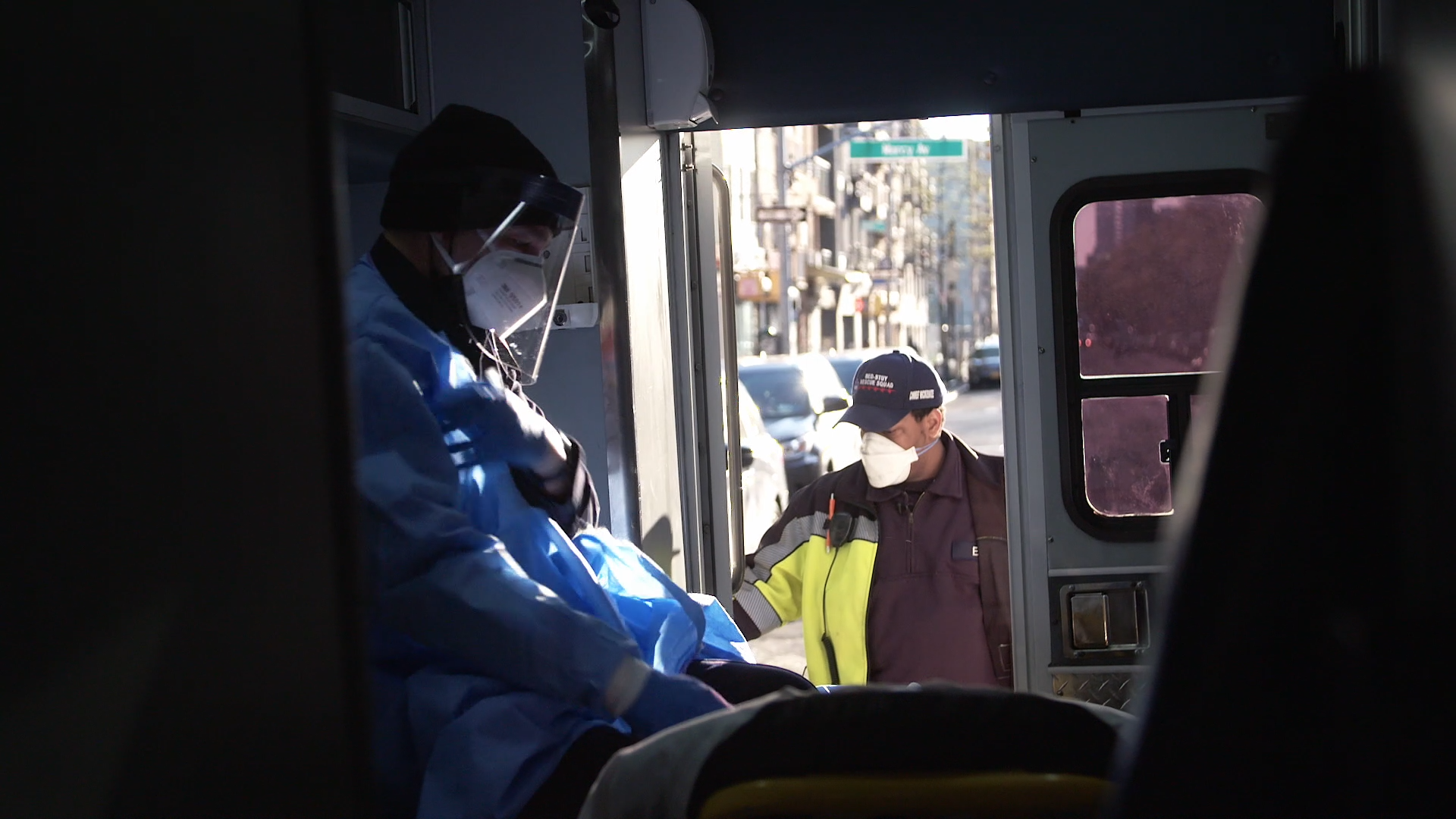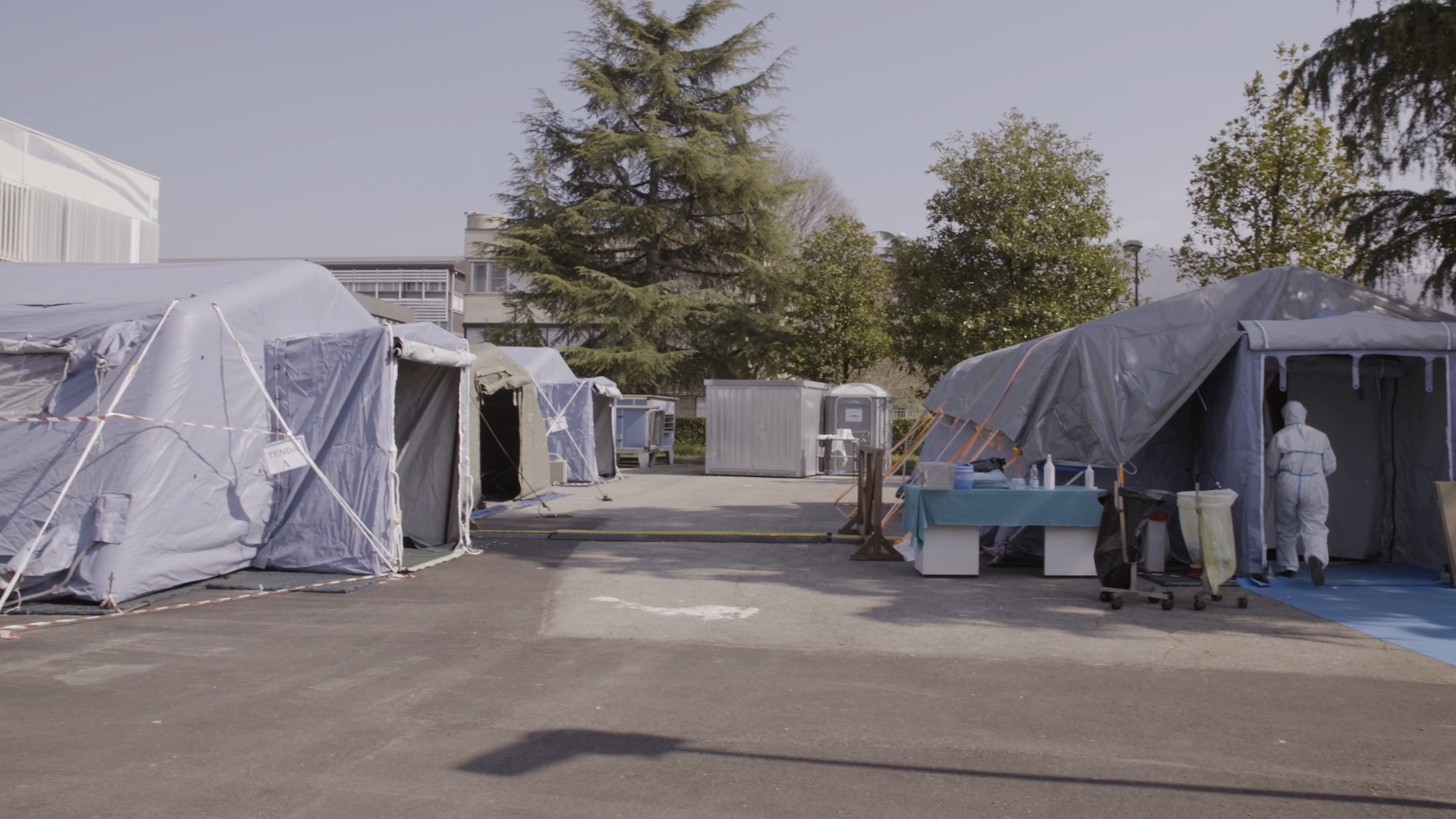ABOUT:
An in-depth look at how poverty and class divisions are complicating Latin America's COVID-19 recovery.
As Asia, Europe and North America make plans and work towards reopening their countries and economies, Latin America is still reeling from the COVID-19 pandemic.
With existing infrastructural challenges, dense and large populations, and economic difficulty challenging its residents, Latin America is struggling to get a grasp on the coronavirus.
‘Infection: COVID-19 In Latin America’ takes viewers to Brazil and Mexico to get a firsthand look at how Latin America’s two largest economies are dealing with the coronavirus through interviews with doctors, residents and community workers vying to contain its spread.
WATCH
DIRECTOR Q&A | JASON MOTLAGH

Field Team filming 'Infection' in Mexico
What attracted you to the story of 'Infection'?
Since the virus struck, there's been a lot of talk about the need for social distancing. But for millions of working poor who must work to survive, that's easier said than done. We wanted to highlight the stark divide between communities that have the ability to uphold best practices, those who don't, and the disproportionate impact the virus is having on their families. We also wanted to show how, in the absence of state support, some communities are rallying to look after their own.
Why was it important to tell this story?
Europe and the U.S. were hit first and hard by the virus. They received a lot of media attention. As weeks have turned to months, Latin American countries are now experiencing the most devastating impact. As media fatigue sets in, it's important that the massive loss of life in this part of the world is not obscured or abstracted while things improve in the north and news coverage wanes.
What should we know about your filmmaking process?
This shoot was unlike any we have done before. Normally we like to immerse ourselves in character-driven stories, with enough time and intimacy to dig beneath the surface. In this case, we had to work with a lot of restrictions and uncertainties -- distance from subjects, tedious safety protocols, and nagging concerns about being unwitting vectors for the virus. We did our best to be safe and effective under less than ideal circumstances.
Did you make any unexpected discoveries while shooting?
Having never worked during a pandemic, it was a relief to establish our own safety routine to mitigate the risks of exposure and ease our anxieties about engaging with people. Each day brought a little more affirmation that we could be responsible storytellers.
What do you hope your documentary will achieve?
I hope viewers understand the privilege many of us have to stay at home, get tested and take optimal care of ourselves during this pandemic -- a choice that legions of people don't have. Middle- and upper-class communities may struggle with boredom, job loss, existential dread and so on, but there's usually a safety net of some kind. The working poor have to step out and earn their daily bread, even if it kills them.
DOCUMENTARY SELECTS
Click on any image for full screen slideshow.
MORE FROM CGTN AMERICA
- Click to share on Facebook (Opens in new window) Facebook
- Click to share on X (Opens in new window) X
- Click to share on Instagram (Opens in new window) Instagram
- Click to share on LinkedIn (Opens in new window) LinkedIn
- Click to share on Reddit (Opens in new window) Reddit
- Click to print (Opens in new window) Print
 CGTN America
CGTN America
















